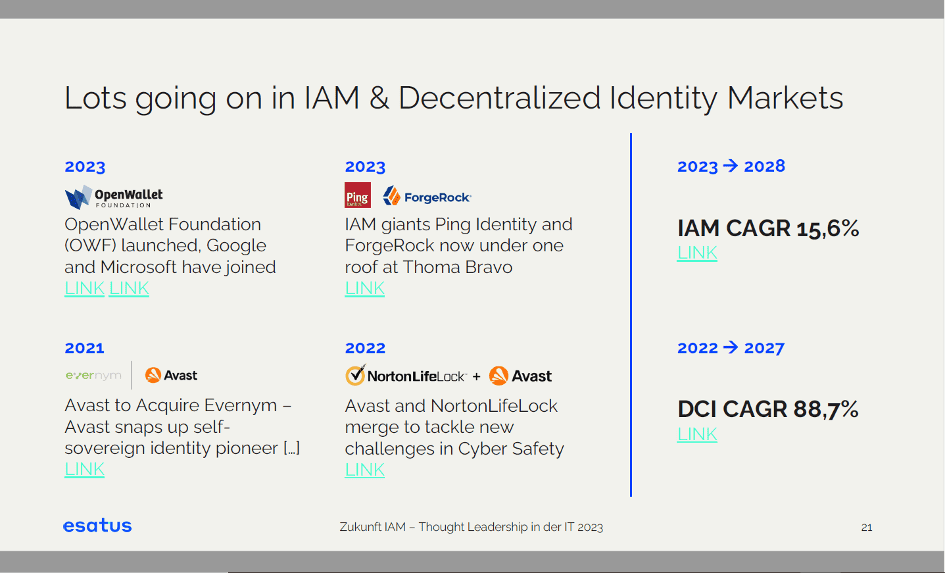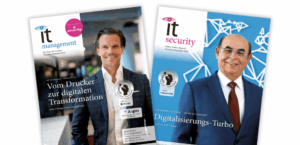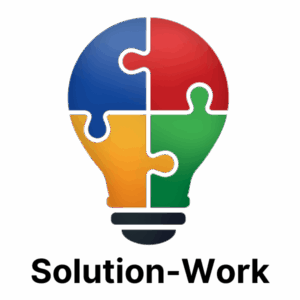7. What is the situation in Germany and worldwide?
I would first like to briefly discuss what is currently happening in Germany:
Germany is very active and, as one of the key stakeholders, has extreme market depth. The BMI has opened a consultation process on eIDAS 2.0 and the EUDI wallet, in which anyone can participate. The kick-off event has already taken place, as has an initial workshop on use cases; the next step will be to examine possible business models for the private sector. The commitment is also very welcome, but when you look at the budgets for these projects, doubts arise. According to the answers to a question from the CDU/CSU parliamentary group in the German Bundestag, the budgets for these projects have tended to fall in recent years.
esatus is of course also looking at how this system can be used on a large scale and, above all, in an overarching context. A wallet would be conceivable for companies, allowing them to place each other in a position of trust in order to exchange data or interact with the wallets of natural persons. esatus has built a solution for this. In principle, it can be assumed that participating organizations should have an org-wallet or at least the ability to issue and process credentials. Dealing with trustworthy data across organizational boundaries in different areas will be a very exciting field as soon as this takes hold.
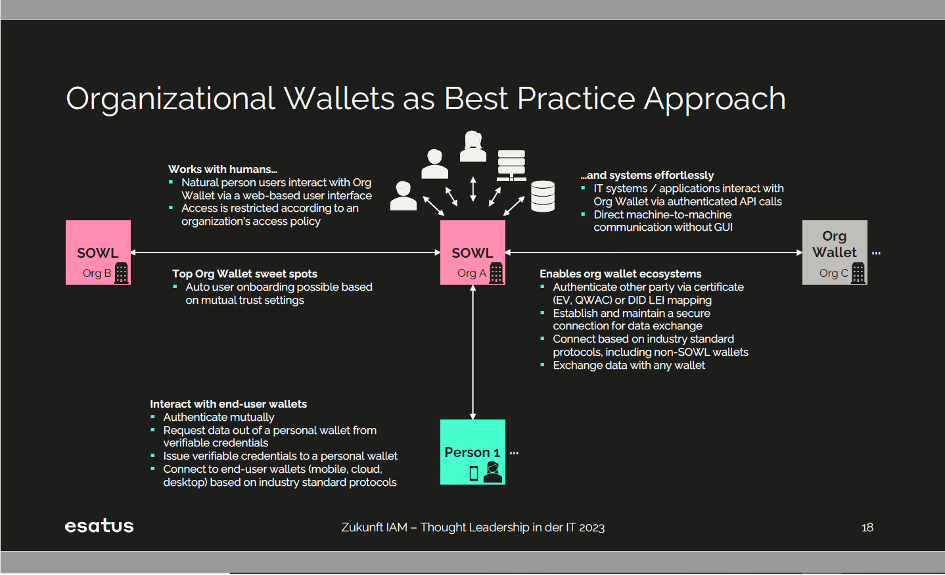
In terms of use cases, there are no limits to the imagination. This would be a huge topic for international trade, and banks would also benefit greatly from such mechanisms when opening accounts.
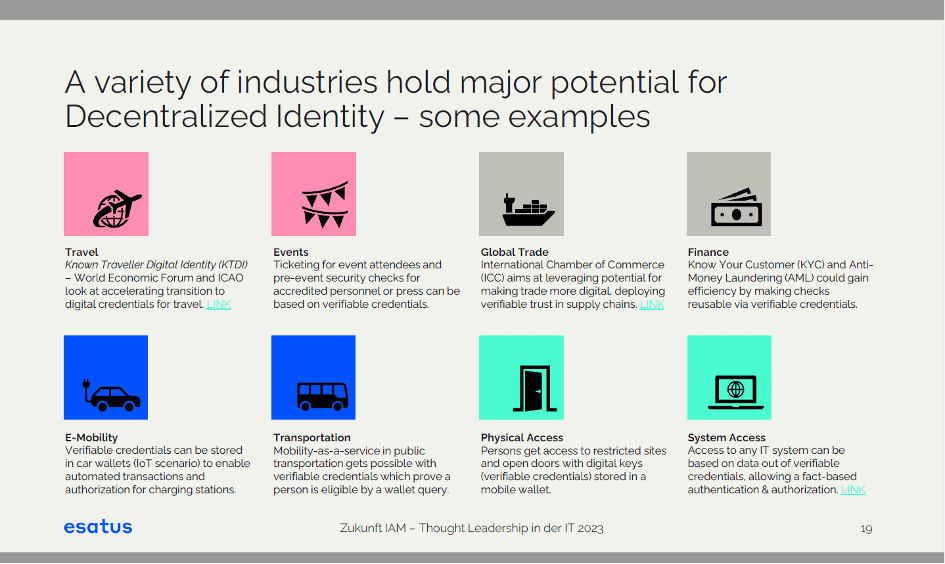
I mentioned at the beginning that this is not a local issue; there is a lot of activity going on all over the world.
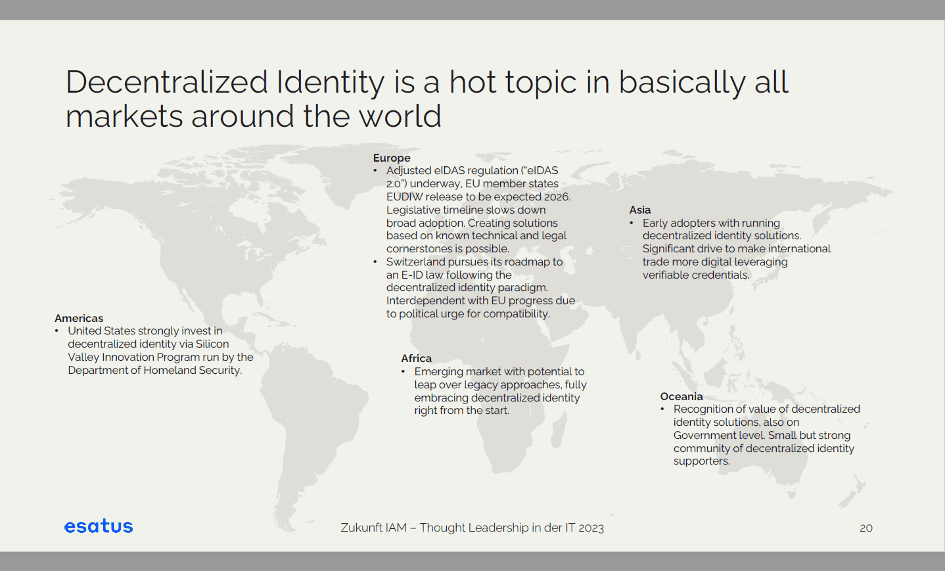
8. Future of identity and access management
Finally, I would like to recapitulate the importance of this topic for the IAM market.
At the last major conferences dedicated primarily to identity and access, such as the Identity and Cloud Conference in Berlin, it was clear to see the spirit of optimism that prevails throughout the IAM industry. The industry is embracing the topic and it is clear to everyone that the decentralized identity paradigm is here to stay, even in the traditional world.
I have shown a few examples on the following slide: The OWF Foundation is supporting this as an open source project and it can be seen as a kind of accolade that Google and Microsoft have become members of the OWF.
This year will see a really massive take-off. We have seen in the classic IAM world that the huge companies Ping Identity and Forge Rock have now merged under one roof. The whole IAM market itself is still growing at up to 15% annually, projected to 2028. The Decentralized Identity market – once it starts – will see growth rates of 88 % over the years. We have already seen several acquisitions in this area.
As soon as applications are launched on a large scale, the floodgates will open for companies’ investment decisions to make this technology usable. That is why we at esatus AG have been happy to be involved for eight years and will continue to work on making the topic a major global success. It is important to us that it is not dominated by the big platforms again, but that open standards and protocols are made possible that help it to become part of people’s lives. so that it is easy to use and useful for them.
